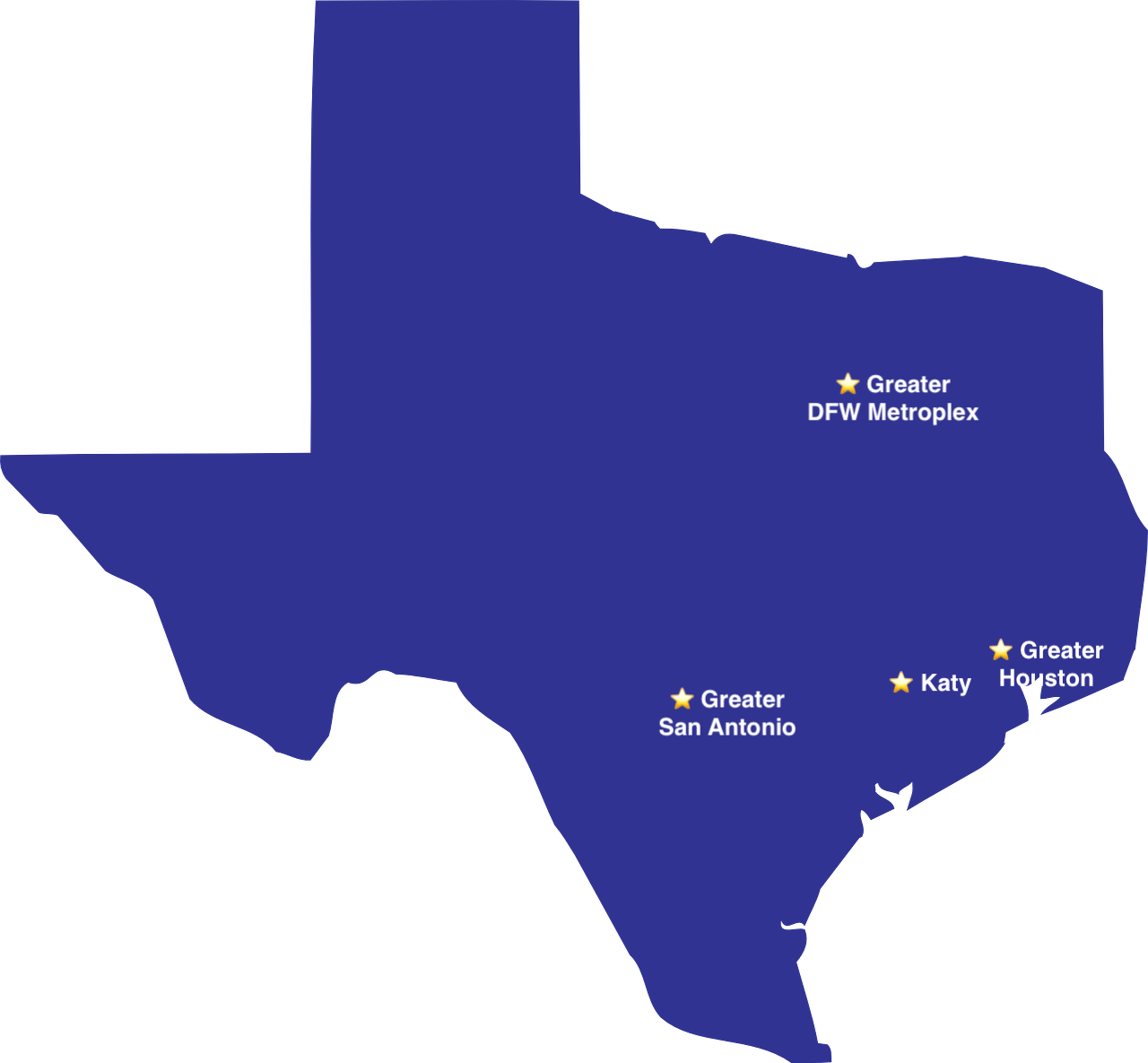Texas Bullying Lawyers
Bullying and Harassment Attorney in Texas Fighting for Your Child
Your child is being bullied at school. The administration is not taking you or the situation seriously. Your child has started to fight when leaving for school in the mornings. Calls to the school office end in promises but little, if any, action.
Bullying claims in Texas are serious matters. Once reported, the school is obligated to investigate and respond to the allegations. And if your child is served under an IEP, the law provides for even greater protection.
What Is Bullying?
Under Texas law, bullying requires a few elements: There must be action. This action can either be one cruel act or a series of actions by one or more students directed at another student. The action could be verbal or written expressions conveyed in person or electronically, or physical conduct. The action must have or will affect the bullied student in one of the following ways:
- Physical harm
- Damage to the student’s property
- Placing the student in reasonable fear of harm to themselves or their property
The action must also:
- Be sufficiently severe or persistent enough that it creates a threatening, intimidating, or abusive educational environment;
- Materially and substantially disrupt either the overall educational process – including the operation of either the classroom or overall school; or
- Infringes on the rights of the bullied student while at school.
Tex. Educ. Code § 37.0832 (2017)
Does the Bullying Have to Occur at School?
No. Texas law covers off-campus conduct (school bus, school trip, school-sponsored activity) and cyberbullying if the conduct would either interfere with the bullied student’s educational opportunities or would substantially disrupt the classroom/school operation or the school-sponsored activity.
What About Cyberbullying?
No. Texas law covers off-campus conduct (school bus, school trip, school-sponsored activity) and cyberbullying if the conduct would either interfere with the bullied student’s educational opportunities or would substantially disrupt the classroom/school operation or the school-sponsored activity.
Does Texas Have a Law Cyberbullying Law?
Yes, Texas recently passed a new law called David’s Law. (Named after a high school student who tragically committed suicide after being cyberbullied).
Does David’s Law Replace the Other Anti-Bullying Laws?
No, David’s Law further expands the protections of bullying victims and broadens the scope of what schools and even law enforcement can do.
Under David’s Law, schools now must include anti-cyberbullying policies in their published District policies and notify parents if their child is either the victim of bullying or the child engaging in bullying behaviors. Schools must also provide a way to report bullying and threats anonymously.
Schools now also have a broader ability to discipline or even expel students for engaging in serious bullying behavior – including encouraging another student to attempt or commit suicide. Also, David’s Law allows schools to work with local law enforcement on off-campus cyberbullying investigations if the cyberbullying and its effects are manifesting at school or at times under the school’s control.
My Child Is Being Bullied Online by Anonymous Users. Is There Any Way to Find Out Who They Are?
Yes, under David’s Law, cyberbullying is now a misdemeanor. This means law enforcement can have subpoenas issued to discover the identity of anonymous posters.
Students can be charged with a crime for bullying or harassing anyone under the age of 18 through electronic means such as text messaging, e-mail, social media, and apps.
The parents of students who engage in cyberbullying may also be held responsible if they knew of the bullying, could have intervened to prevent or stop it, and didn’t. David’s Law also provides additional resources for counseling and rehabilitation services to both the victim of bullying and the child engaged in bullying behavior.
How Do I Know if My Child Is Being Bullied, Abused, or Harassed?
Sometimes a child will let you know, “Hey, I’m having issues with this kid/these kids at school…” Other times, they may be too embarrassed or scared to tell anyone. If their normal behavior seems off, trust your intuition and try to create a dialogue with them about things that are happening in their life. There are some warning signs that something may be going on that your child is not telling you about:
- School or Bus Avoidance (not wanting to go to school or ride the bus)
- Seeming withdrawn
- Coming home with missing or damaged belongings
- Coming home with bruises, cuts, scrapes, etc.
- Losing interest in activities and school
- Physical/Mental Behavior Changes:
- Sleeping too much or too little
- Nightmares
- Bedwetting
- Crying
- Depressed behavior
- Anxious behavior
My Child Is Non-Verbal, How Will I Know They’ve Been a Victim of Bullying, Abuse, or Harassment?
Unfortunately, children with disabilities are at a higher risk of being bullied at school than abled-bodied children. Some children with disabilities can communicate directly; some children who are low-verbal or non-verbal will let you know something is wrong in other ways.
There may be the same warning signs discussed above, but some additional warning signs may include:
- Behavioral outbursts around certain places or people
- Avoidance techniques around certain situations or people
- Social withdrawal
- Developmental regression
My Child With a Disability Is Being Bullied. Does This Impact Their Education Rights?
It depends. Under the Individuals with Disabilities Education Act (IDEA) your child is entitled to a free, appropriate public education (FAPE) in the least restrictive environment. This means the school must provide your child with an appropriate (tailored to meet your child’s individual needs) public education, at no cost to you.
If your child is being bullied and the bullying is interfering with their ability to receive a meaningful educational benefit, then they are being denied FAPE, which violates the IDEA. The bullying does not have to be based on their disability; it just has to interfere with their ability to access and receive an educational benefit.
My Child With a Disability Is Being Bullied, What Steps Can We Take to Ensure They Are Still Receiving FAPE While Being Protected?
Consider calling an IEP meeting as soon as possible to determine if the bullying is denying your child FAPE and amend the IEP as needed. Another point to remember, your child is entitled to FAPE in the least restrictive environment for them. If your child’s educational placement is in the general classroom setting and they are being bullied, the school district should not move your child to a more restrictive setting.
Your child is entitled to FAPE in the least restrictive environment. This includes a safe environment since bullying can prevent your child from accessing appropriate education and receiving meaningful educational benefits. The IEP team must determine if your child’s individual educational needs have changed based on the bullying. If they have changed, the IEP needs to be amended to ensure your child is receiving FAPE.
Besides amending the IEP to provide additional resources and support, the IEP team can create a Bullying Prevention Plan. This Plan will contain strategies and accommodations to protect your child.
Some examples of strategies and accommodations could include:
- Appointing a point of contact person your child can go to for assistance or to report an incident
- Modifying your child’s class schedule to allow them to leave class a few minutes early or arrive a few minutes late to prevent any bullying incidents in the hallways or bathrooms
- Have staff shadow (keep an extra set of eyes on your child without it being obvious there is additional staff watching them) your child in public areas such as hallways, cafeterias, school gymnasium, and playgrounds.
- Have staff and faculty reassure your child that they have the right to be safe and feel safe while at school
What if My Child Is the Bully?
Finding out your child is bullying others can be shocking news to receive. The most important step for you as the parent or guardian is to be proactive about it. Talk to your child and explain how bullying is unacceptable. Try to find out why they are bullying.
Also, consider calling an IEP meeting to address the issue and consider what, if any, additional supports or services your child may need. If your child’s bullying behavior persists, the school may want to create a Behavior Intervention Plan (BIP.)
What if My Child Is the Bully, but They Have a Disability?
Students with disabilities who violate school policies – including anti-bullying policies – are subject to discipline. If your child receives more than 10 days of out-of-school suspension for incidents of them bullying other students, they are entitled to a Manifestation Determination to determine if their behavior is a manifestation of their disability.
The Manifestation Determination, like the IEP, is governed by the Individuals with Disabilities Education Act (IDEA) and failure of a school district to comply with the Manifestation Determination procedure could lead to legal recourse against the district.
What Will the School Do About Bullying?
Texas law requires school districts to adopt and publish policies concerning bullying. Look for these policies in the district’s handbook and on the district websites.
Policies must contain the following elements:
- Statements prohibiting not only bullying but also retaliation;
- Notification procedures for parents/guardians of the victim and bully;
- Procedures for reporting bullying
- Counseling options for victims and witnesses of bullying, or for the student doing the bullying;
- An explanation of the investigative procedure
- Provisions relating to the discipline of students with disabilities; and
- A statement on how the district policy will be publicized throughout the district.
Texas law also requires school districts to incorporate anti-bullying prevention into their health education curriculum. The law also encourages but does not outright require, school districts to train staff and faculty on how to prevent, identify, respond to, and report bullying and harassing behaviors.
Does Texas Have Protections for Specific Groups of People?
No, the Texas anti-bullying laws do not contain any specified protected class of students. However, Texas schools that receive federal funds (usually public schools and charter schools) are required by various federal laws to address discrimination and bullying based on certain personal characteristics.
What Are the Federal Laws That Address Bullying?
Currently, no federal laws directly address bullying. However, there are federal laws that address discriminatory harassment that overlaps with bullying behaviors.
Schools that receive federal funds are required to address conduct that is:
- Severe and pervasive;
- Creates a hostile educational environment (interferes with or limits a student’s ability to participate in or benefit from the services, activities, or opportunities the school offers);
- Based on a student’s race, color, national origin, sex, disability, or religion
The federal civil rights laws that prohibit those types of discriminatory harassment include:
- Title IV of the Civil Rights Act of 1964
- Title VI of the Civil Rights Act of 1964
- Title IX of the Education Amendments of 1972
- Section 504 of the Rehabilitation Act of 1973
- Title II of the Americans with Disabilities Act
- Title III of the Americans with Disabilities Act
- Individuals with Disabilities Education Act (also known as IDEA)
My Child Was Injured From Bullying While at School, What Happens Next?
If the school district does not notify you of any incidents that occurred while your child was at school, notify the administration as soon as possible. Document any and all injuries, including any visits seeking medical treatment or diagnosis, medical imaging (x-rays, CT scans, etc.) done, and prescriptions. Try to have your child write out or dictate a statement of what happened. Meet with the school administration as soon as possible to discuss the incident and ways to keep your child safe. The school district will usually have insurance to cover accident/incident costs up to a certain dollar amount. If the school administrator does not have information on the liability insurance readily available, contact the school district’s Superintendent’s office for more information.
My Child Was Injured From Bullying at School, Can I Sue?
It depends. Texas law provides educators with official immunity in Chapter 22 of the Education Code. An educator is immune from liability if they can prove the following:
- They are an employee of a school district
- Their actions were within the scope of their duties
- Their duties involved the exercise of judgment or discretion on their part
There are, of course, exceptions and situations when an educator may not be immune from liability. These are very fact-specific to each case. If you are a parent or guardian of a student in Texas who sustained serious injuries from bullying while at school and wants to pursue legal options, please set up a discovery call for more information and to discuss your options with an attorney near you.







